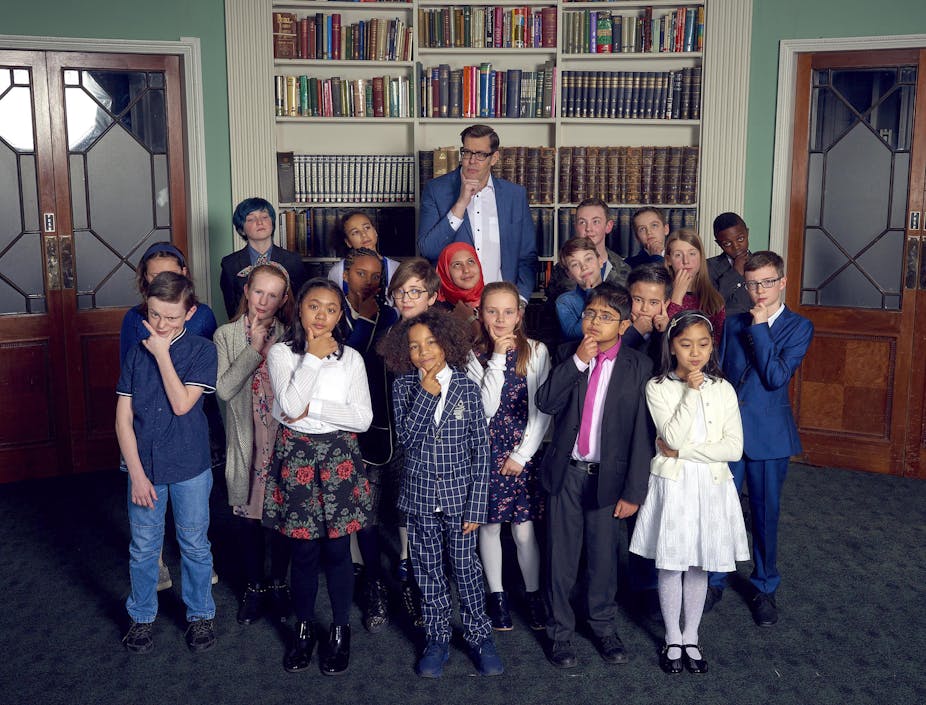Do you know the freezing point of water in degrees kelvin? (It’s 273.) Or who led the committee of public safety in revolutionary France? (It was Robespierre.) Does it matter if you do? It mattered to Rahul Doshi, a 12-year-old boy from London, who recently won the latest series of Child Genius, a British television show which tests the knowledge of exceptional children. It also clearly mattered to his parents.
Since Rahul’s victory however, the show has been widely accused of exploiting its young stars, whose tears and concerns are broadcast alongside displays of their prodigious talents.
The contestants are all no doubt aware that they live in a competitive world in which children are pressed to excel and succeed. And healthy competition can have positive effects on child development, encouraging and inspiring them to do their best. But not everyone feels comfortable with competing. It becomes unhealthy when it is forced, neglects individual differences and cultivates in children a grandiose view of themselves.
When it comes to competitions and young people, it is important to recognise that every child is different. We need to respect individual differences and the fact that children’s abilities are as varied as their needs. We often hear discussions about children with learning difficulties. But there is a striking lack of evidence on the psychological needs of children who are intellectually gifted.
The people around them shape the way children view themselves. Adults are often encouraged to lavish children with inflated praise – “You’re so smart!” – after competitive tasks. But a child praised for being “terrific” might infer that they are expected to always be terrific in the future. Praise carries an implicit expectation of exceptional future performance.

Inflated praise may cause those children with low self-esteem to avoid tasks which might put them at risk of revealing their “worthlessness”. They fear not being able to receive the same level of praise in the future, so avoid trying. They may feel ashamed of failure and fear seeking challenges. Seeking challenges is often linked with the concept of a “growth mind-set”, psychologist Carol Dweck’s idea that intelligence can develop and that effort leads to success.
Conversely, children with high self-esteem may perceive praise as encouragement and an opportunity for self-promotion. There is evidence that the character trait of narcissism is increasing while levels of empathy are decreasing in Western societies. Studies have shown that narcissism is partly rooted in early socialisation experiences. The belief that “I am special” starts young.
One way children acquire narcissistic tendencies is by internalising their parents’ inflated views of them – and by coming to believe that they are superior. True self-esteem in children is cultivated by their parents’ affection, acceptance and appreciation toward their child. It is also important that adults praise effort – “You worked so hard!” – rather than just ability.
The courage to accept being “imperfect” enables us to grow stronger and overcome the curse of certainty. “I am right, you are wrong” is how many people view the world today. There is no discourse, no conversation.
It is often forgotten that a competitive and critical attitude is not always compatible with compassion and empathy. Our evolutionary history has endowed us with competitive, self-serving motives – but also a need to connect with other humans to survive.
The effect of individual intelligence can be good or bad, depending on how it is used. We should not be slaves of intelligence – intelligence should serve us. We are all human beings and need to use our intellect to cultivate values and improve society.
Too clever by half
Education systems should promote not just intelligence, but also basic human values. Creating a better world requires not only marvellous brains but also a strong sense that every person on this planet is part of the human family.
Decades of research have shown that the most harmful belief people can have is the belief that they are superior to others – in their intellectual abilities, religion, race or gender. Intelligence is important. But society demands a much wider intellectual infrastructure than a handful of geniuses. We need to ensure that all children reach some level of ability in order to integrate into a community.
Success can be defined in many ways. Do we need more geniuses or more warmhearted, compassionate people? Sometimes simply letting go of “being right” is the vehicle for moving forward. As the philosopher Socrates said: “All I know is that I know nothing.” The moment we begin feeling pride about our intellect, our ability to keep learning falls apart.

